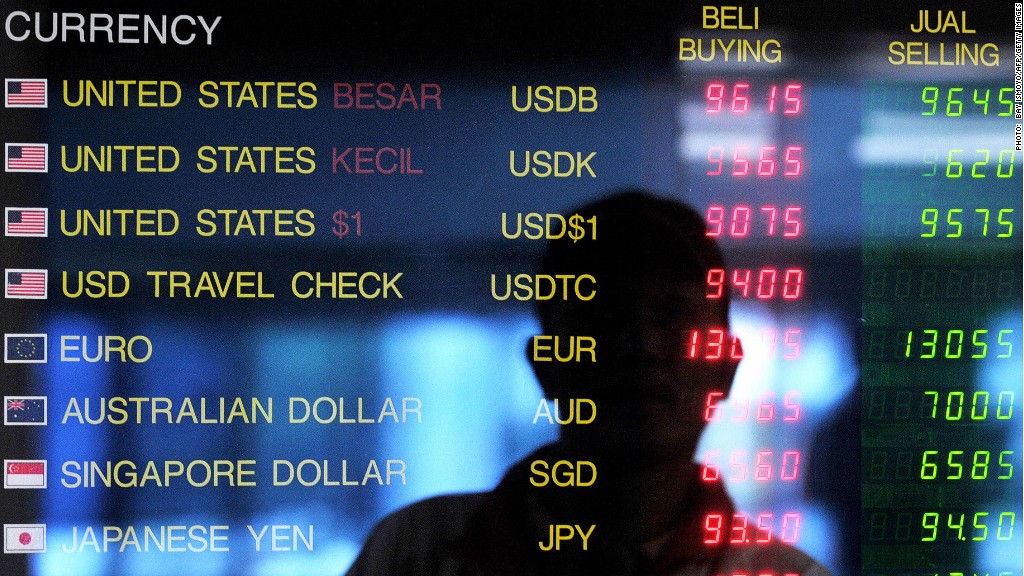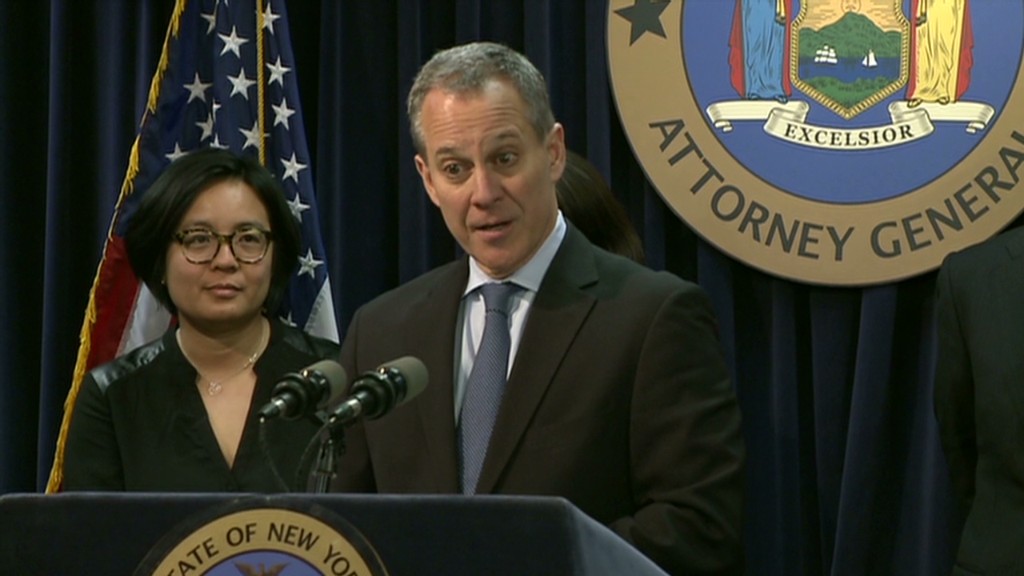
Yet another dark cloud is looming over global banks as officials examine their behavior in the massive foreign exchange market, threatening to deal a new blow to earnings and reputations.
Regulators in the U.S., Europe and Asia are in the early stages of investigating whether traders at the world's top banks manipulated foreign exchange benchmarks to profit at the expense of their clients.
Goldman Sachs (GS), Citigroup (C), JP Morgan (JPM), Deutsche Bank (DB), Barclays (BCS), Royal Bank of Scotland (RBS), UBS (UBS) and HSBC (HBCYF)are among the firms in their sights.
Financial lawyers say the probe could have steep and uncertain consequences as the impact of currency market abuse would reverberate far beyond Wall Street.
Related: European banks under fire in global forex probe
It's unwelcome timing for an industry already fighting a raft of legal battles over foreclosure abuses, misleading investors over mortgages and payment protection insurance. And then there's the Libor scandal.
A global investigation into the setting of the London interbank lending rate, and related global benchmarks, has so far yielded about $3.6 billion in fines. Penalties for some of the biggest players are still to come. Traders have also faced criminal charges.
As the extent of damage caused by Libor-rigging is revealed, lawyers say the probe into fixing currency rates could unfold in a similar way, and rival its impact.
London is the center of the loosely regulated foreign exchange market, the biggest in the world's financial system with average daily turnover of $5.3 trillion.
Proven abuse in this market would have a significant ripple effect, exposing offending firms to a host of legal action.
Related: JPMorgan reaches $13 billion mortgage settlement
Civil action related to Libor tampering by big banks is already underway. One of those cases is being led by Kirby McInerney LLP partner David Kovel.
"The banks ultimate exposure to Libor is still highly uncertain. These are massive markets, both of them. The [forex and Libor] benchmarks have a knock-on effect to all of these other markets," Kovel said.
Assistant professor of law at Wake Forest University Andrew Verstein agrees. He said the global currency system is of "stupefying magnitude" and civil actions would follow any misconduct finding by regulators.
"Every big business in the world has a relationship with some bank that handles foreign exchange for them," Verstein said.
"If you're operating internationally -- either as a tourist or a company -- foreign exchange has to be a part of your life," he said.
Related: Still no charges for Wall Street execs five years after crash
So far, no institution has been accused of any wrongdoing in fixing currency benchmarks. Barclays refused to confirm reports that six of its traders were suspended earlier this month in connection with the investigation.
But the steady stream of legal action and investigations continues to undermine trust in the banking sector, more than five years since the financial crisis began.

Banks will do all they can to soften the blow of any penalties as litigation costs eat into profits and some are required to raise new funds to boost liquidity buffers.
They may be more willing to assist authorities with the foreign exchange probe to ease possible fines further down the track.
Verstein said the degree of co-operation was a factor in determining the size of the settlements agreed over Libor.
Barclays was the first bank to come clean on Libor, paying around $450 million. That was dwarfed by settlements with others such as UBS and Rabobank, which paid a fine of nearly $1 billion.
"It's hard to imagine that Rabobank was twice as culpable as Barclays," said Verstein.


